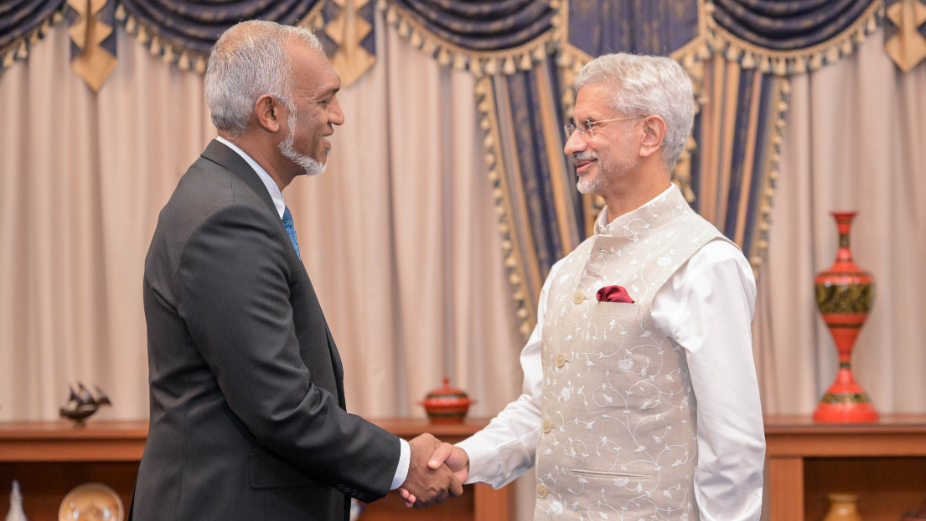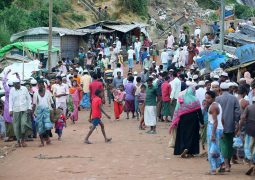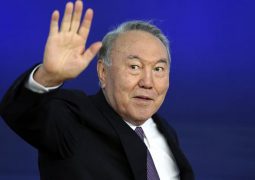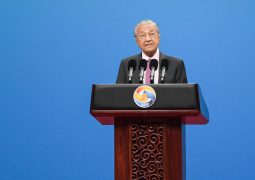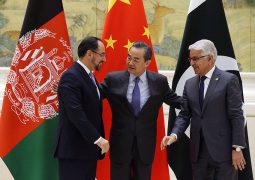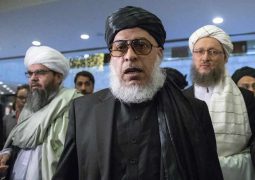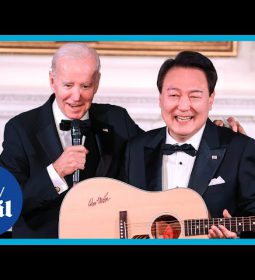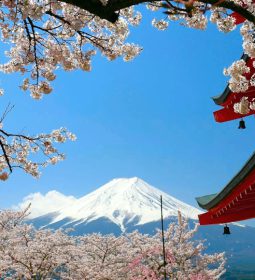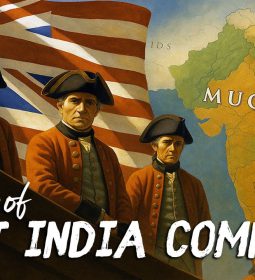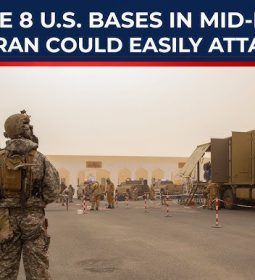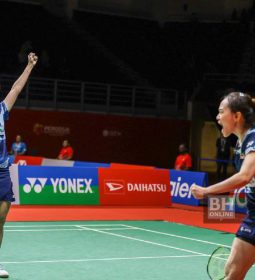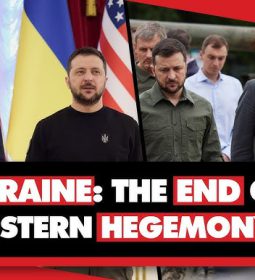Why is pro-China Maldives leader Muizzu wanted India out. He has ended up inviting India back in.

Why is pro-China Maldives leader Muizzu seeking to mend India ties?
Mohamed Muizzu embarks on a state visit to India a year after becoming president on anti-India rhetoric. Here’s why.
Maldives President Mohamed Muizzu has called India a “valued partner” on his first state visit to New Delhi in an effort to mend ties that were strained by Muizzu’s anti-India rhetoric during his election campaign.
Muizzu’s pro-China stance and campaign to drive out Indian troops stationed in the archipelago nation threatened traditionally strong ties between the two Indian Ocean nations.
After his election win in late 2023, the Maldivian leader, however, signalled a willingness to engage with India – and seems to have found a willing partner in New Delhi. “Maldives is India’s key maritime neighbour in the Indian Ocean Region,” India’s Ministry of External Affairs said in a statement announcing Muizzu’s five-day visit, which began on Sunday.
So why has Muizzu visited India, and what does it mean for India-Maldives ties?
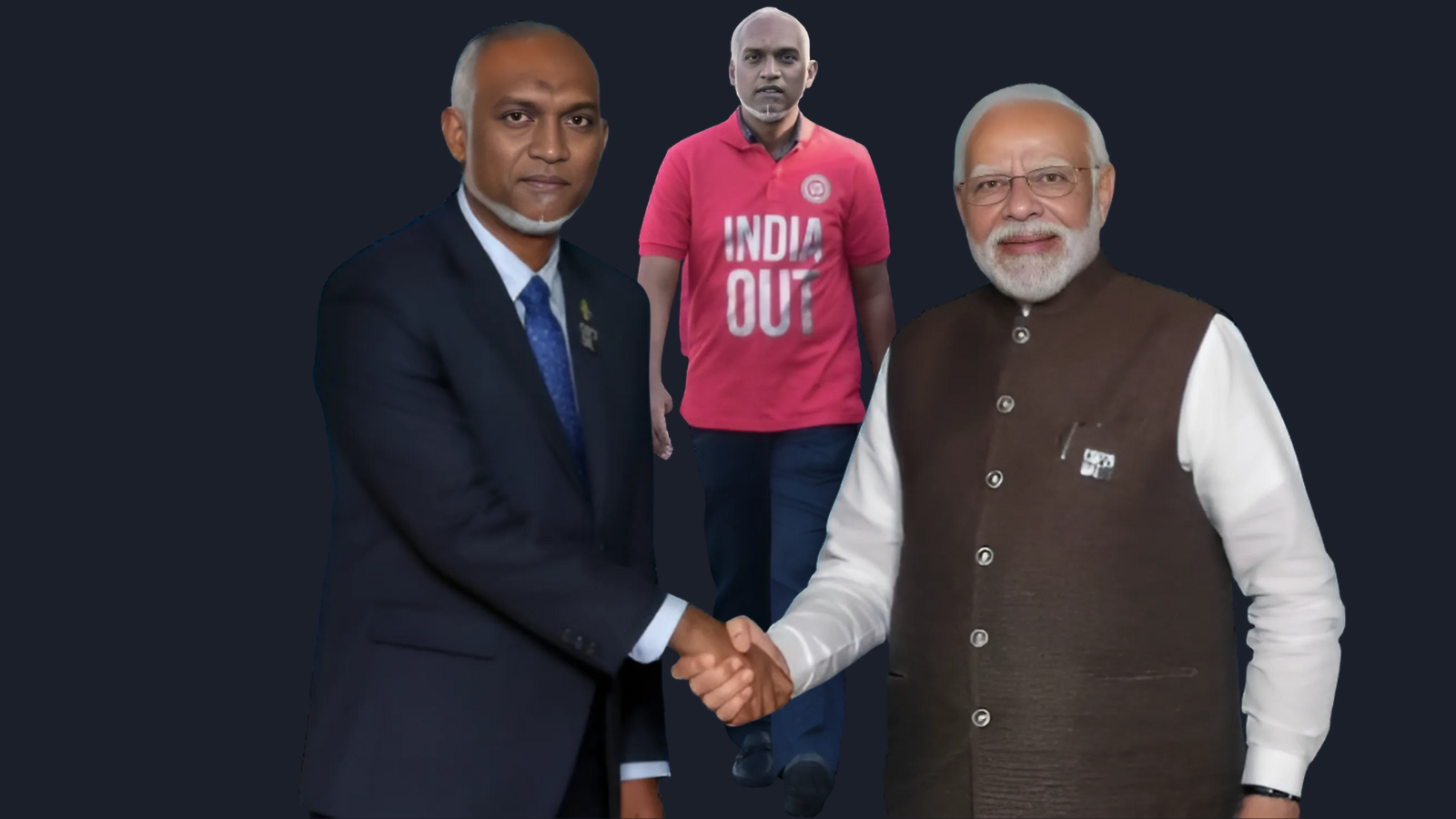
What was on the agenda for Muizzu’s visit?
Muizzu was given a red carpet welcome, and his busy itinerary included meeting with Prime Minister Narendra Modi and other top Indian officials.
According to India’s foreign office, Muizzu and Modi discussed “energy, trade, financial linkages and defence cooperation”. Specifically, they talked about a free trade agreement.
After the meeting, Modi said India would help the Maldives develop infrastructure projects. India approved a $400m currency swap agreement to support the cash-strapped Maldivian economy.
Muizzu said this agreement “will be instrumental in addressing the foreign exchange issues we are facing right now”.
The two leaders also virtually inaugurated a runway at Hanimaadhoo International Airport in the Maldives.
Why is the Maldives president visiting India?
The Maldives is grappling with a budget deficit and debt burden. It faces the prospect of defaulting on debt repayments with its foreign reserves falling to $440m.
The Maldives, which heavily borrowed from China during former President Abdulla Yameen’s term, owes Beijing $1.37bn, according to World Bank data. New Delhi is also a major source of credit for Male.
Muizzu visited Beijing in January, signing infrastructure and climate deals with China, but he has not burned bridges with New Delhi. Historically, Male has cultivated friendly ties with New Delhi. Yameen, a former ally of Muizzu, forged closer China ties and signed big infrastructure projects.
“Muizzu has been trying to better balance the relations between the Maldives and China and the Maldives and India,” Michael Kugelman, director of the South Asia Institute at the Washington-based Wilson Center, told Al Jazeera.
While Muizzu has demonstrated a desire to strengthen ties with China, “particularly on the defence side,” he has continued to work closely with India in other areas, “particularly when it comes to commercial and economic ties,” said Kugelman.
The island nation’s economy is largely driven by its tourism sector, which makes up nearly a third of its GDP. The 1,192 islands in the archipelago are home to an array of luxury resorts.
But the COVID-19 pandemic and later the strained ties with India hit the economy badly. More than 200,000 Indians visited the Maldives in 2023 – the highest from any country. But the numbers dipped by 42 percent this year, amid tensions following Muizzu’s election. India is also a major trade partner of the Maldives.
“I think that Muizzu does recognise that there can’t be any impression that he wants to back away from India and all of the critical economic and development support that entails,” Kugelman said.
What was the opposition’s ‘India Out’ campaign?
Muizzu’s People’s National Congress (PNC) and its ally Progressive Party of the Maldives (PPM), led by Yameen, campaigned on the promise to evict a small contingent of Indian troops from the Maldives over opposition fears that the presence of Indian soldiers posed a danger to its sovereignty.
Mohamed Saeed, a senior leader from Muizzu’s PNC, said, “We are not against the people of India.”
“Our people just want the Indian military to leave. We are a very fragile country. We cannot afford to have any military presence of another country here,” he told TRT World when the “India Out” campaign was launched in 2020 when pro-India Ibrahim Solih was president.
According to New Delhi, Indian forces were tasked with operating the two helicopters and one aircraft India had donated to the Maldives.
But opposition parties alleged there was a plan for a permanent Indian military base in the island nation. A leaked document released in the local media said an India-funded dockyard for the Maldivian coastguard would be used by Indian navy vessels for years.
The opposition asked why such an important deal was not debated in parliament. Solih was accused of signing a secret defence deal with India, an accusation the government denied as it accused the opposition parties of “spreading lies”.
“India has always been the Maldives’ closest ally and trusted neighbour,” a statement by the government said in November.
“Support provided by India, on areas such as search and rescue capabilities, casualty evacuation, coastal surveillance, and maritime reconnaissance, directly benefit the Maldivian people,” it said.
New Delhi withdrew its soldiers and other support staff after Muizzu became president, but New Delhi and Male reached an agreement to replace them with civilians who will help the Maldives manage the aircraft gifted by India.
What’s the larger geopolitics at play in the Maldives?
Indian forces have long trained Maldivian troops in reconnaissance and rescue and aid operations. India sent its troops in 1998 to thwart a coup attempt against then-President Abdul Gayoom.
During Solih’s presidency, India provided financial aid to the Maldives to help fund projects in the education, health and community development sectors, according to a bilateral brief on India’s foreign office website. In 2019, India provided a cash grant of 50 crore Indian rupees ($6m).
China and India are in a geopolitical struggle for influence in the strategically located Maldives, which sits on one of the busiest maritime routes in the world. New Delhi is wary of China’s growing military presence in the Maldives and other island nations such as Sri Lanka.
According to an Al Jazeera report from 2021, India opened a military base on a remote Mauritian island while in March New Delhi inaugurated a new naval base on its Lakshadweep island, about 130km (80 miles) north of the Maldives.
Muizzu’s trip is an occasion to reset ties and address New Delhi’s geostrategic concerns.
“The relationship between India and Maldives is centuries old,” Modi said in a joint statement with Muizzu on Monday.
Kugelman said India recognises that the Maldives is “a battleground for India-China competition”.
“I think that New Delhi wants to ensure that its leverage remains intact and by extension that its influence remains strong with the Maldives,” he said, adding that as long as India continues to be perceived by the Maldives as a critical economic partner, particularly at a moment of economic stress, India will continue to retain leverage.
Will Muizzu’s diplomatic shift affect him back home?
So how will Muizzu’s diplomatic outreach to India be seen in the Maldives, given that he made the “India Out” campaign a major plank of his campaign?
“You have had some notable anti-India sentiment among the public in the Maldives,” Kugelman said. “Certainly his decision to run his presidential campaign on a platform to expel the Indian military presence was a popular one, and it helped catapult him to the presidency.”
However, “there are several factors at play that I think will minimise the political damage that Muizzu could suffer here,” Kugelman said.
First, Muizzu upheld his pledge and expelled the Indian military from the Maldives. He also promptly strengthened defence ties with Beijing with some new military agreements. “These are things that will have been received well by those in the Maldives that were unhappy about the Indian military presence in the Maldives.”
“Muizzu never promised to scale back on economic and commercial ties with India. He never promised not to engage with India. He never promised to essentially cut off that relationship.”
What’s next?
Muizzu’s trip underscores his efforts to repair ties with New Delhi, said analysts. “India is a key partner in the socioeconomic and infrastructure development of the Maldives and has stood by the Maldives during our times of need,” Muizzu said after his meeting with Modi.
New Delhi also pledged to develop a commercial port on the Maldivian island of Thilafushi to decongest the port in the capital, Male.
Additionally, Modi said India will offer financial support for the Maldives in the form of a $100m treasury bills rollover.
RuPay, an Indian multinational financial services and payment system, was launched in the Maldives on Monday, and Modi said India plans to connect the two South Asian countries through the Indian instant payment system Unified Payments Interface.
But symbolically, the biggest moment of Muizzu’s visit was an announcement that followed his meeting with the Indian PM: Modi accepted an invitation for a state visit to the Maldives next year.
Muizzu wanted India out. He has ended up inviting India back in.
- Previous Malaysia expresses backing for UNRWA, condolences over hundreds of staff dead from Israeli attacks
- Next Putin meets Iran’s Pezeshkian to bolster ties amid spiralling Middle East violence


